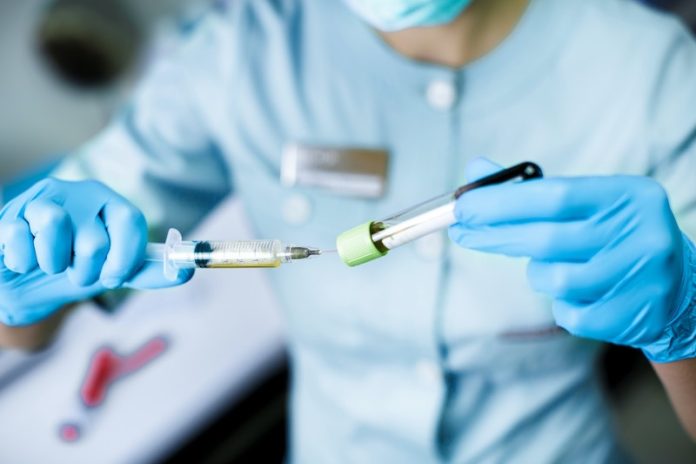
Imagine a disease that quietly spreads without showing clear signs until it’s often too late. That’s what happens with a type of ovarian cancer called High-grade serous ovarian carcinoma (HGSOC).
This cancer is not only the most common among ovarian cancers but also the deadliest. But why is it so lethal?
A big reason is that there hasn’t been an easy and reliable way to find it early. For most women, by the time it’s found, it has often spread and become harder to treat.
Most of us have known someone who has battled cancer, and we understand how crucial early detection is.
Catching cancer early often means it can be treated more effectively and gives a higher chance of survival.
Specifically, for ovarian cancer, if found and treated at an early stage, a woman has over a 90% chance of living for five more years or longer. That chance decreases to less than 40% if found later, making early detection a critical mission.
OvaPrint: A Simple Blood Test with Big Potential
In comes OvaPrint, a new kind of blood test, created by a team of researchers led by Dr. Bodour Salhia at the USC Norris Comprehensive Cancer Center.
This test isn’t just another medical examination. It could be a game-changer in the fight against ovarian cancer.
OvaPrint can potentially tell doctors whether a growth in the pelvis, called a pelvic mass, is cancerous without having to do surgery to check.
Here’s a simpler explanation: Our DNA, which is like an instruction manual in each cell in our bodies, sometimes undergoes changes. Some of these changes can hint at the development of cancer.
The team behind OvaPrint developed a way to spot these changes by looking at tiny bits of DNA in the blood. Specifically, they searched for altered patterns in DNA methylation – a natural process that controls how genes work.
Through an impressive effort, the researchers were able to identify patterns that were linked to HGSOC, making it possible to detect it with a blood test, which is easier and less invasive than other methods.
The test showed a promising 91% accuracy in their initial studies, meaning it correctly identified 91% of the cases it was tested on.
Turning a Page in Ovarian Cancer Treatment and Detection
OvaPrint’s potential isn’t just in identifying whether a pelvic mass is dangerous. Its real power could be in its use for regular check-ups.
Imagine if, during your yearly check-up, a simple blood test could catch early-stage ovarian cancer, even before any symptoms showed up.
For a deeper perspective, the usual method of figuring out if a pelvic mass is cancerous involves surgery, which comes with risks and requires significant recovery time.
This is because unlike many other cancers, doctors typically can’t use biopsies (taking a small tissue sample) to diagnose ovarian cancer.
OvaPrint offers a much simpler alternative – a straightforward blood test that could provide answers without going under the knife.
This isn’t just about making diagnosis simpler. It’s about saving lives. Early detection means that treatment can start sooner and has a higher chance of being successful.
But of course, while the initial findings are exciting, more work needs to be done to confirm OvaPrint’s effectiveness. Dr. Salhia and her team aren’t stopping here.
They’re embarking on further research to verify their findings with more participants and also exploring if OvaPrint can be tuned to detect other subtypes of ovarian cancer.
In conclusion, OvaPrint isn’t just a scientific advancement; it’s a beacon of hope for millions of women worldwide.
This test, if proven effective in larger follow-up studies, has the potential to become a powerful tool in the universal fight against ovarian cancer, changing outcomes, and saving lives.
In a world where ovarian cancer silently affects countless lives, tools like OvaPrint could be the key to turning the tides, offering early detection, and thereby, better chances at successful treatment.
OvaPrint shines as a promising stride toward a future where the silent progression of ovarian cancer can be halted in its tracks, enabling many to live healthier, longer lives.
If you care about cancer, please read studies that a low-carb diet could increase overall cancer risk, and berry that can prevent cancer, diabetes, and obesity.
For more information about health, please see recent studies about how drinking milk affects the risks of heart disease and cancer and results showing vitamin D supplements could strongly reduce cancer death.
The research findings can be found in Clinical Cancer Research.
Follow us on Twitter for more articles about this topic.
Copyright © 2023 Knowridge Science Report. All rights reserved.



